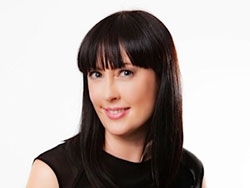Victorian paramedics have vowed to actively campaign against the state government in the lead up to this month’s election.
Ambulance Employees Association Victoria (AEAV) and the Coalition have failed to come to an agreement over wages and conditions in their bitter two-year-long industrial relations dispute.
Subscribe for FREE to the HealthTimes magazine
AEAV general secretary Steve McGhie said members this week voted to campaign against the government, after the government failed to resolve the dispute before it went into caretaker mode in the lead up to the November 29 election.
Mr McGhie said while the union had failed to reach an agreement with the Coalition, Labor has pledged to work with paramedics to finalise negotiations over pay and conditions if it wins government.
Labor has promised to refer paramedic pay rates to the Fair Work Commission and to establish an Ambulance Performance and Policy Consultative Committee to work to improve ambulance response times, ramping and paramedics’ workload.
“Clearly the indications for us is that we believe the better outcome for paramedics and probably for the ambulance service would be if Labor gets elected but we’re not telling people who to vote for,” Mr McGhie said.
“We’ll be campaigning against the government in regards to this ridiculous situation of being in negotiations for two years and four months and we still can’t reach an agreement.
“We will be campaigning against them not only for wages and conditions but because of the crisis within the ambulance service of poor response times, hospital ramping up times, the lack of resources and the low morale in the industry.”
The government has offered a $3000 sign-on payment for full-time paramedics, a six per cent wage increase for 2014, a three per cent wage rise for July 2015 and another three per cent pay rise for July 2016.
Mr McGhie said despite the government foreshadowing an imminent deal, negotiations had stalled over some final sticking points, including an extension of the $3000 sign-on payment to part-time paramedics and on the agreement’s expiry date.
“They were seeking November 2017 and we thought that was too far into the future, we offered them November 2016 or a date earlier,” he said.
“We also suggested to them that if they wanted to stick with November 2017 then they would either need to put another monetary instalment in or increase the percentage increases.
“The reason for that is that if it expired in November 2017, our current agreement expired in November 2012, so it would have been a five year period for a 12 per cent wage increase, so it would have only averaged at 2.4 per cent per annum.”













